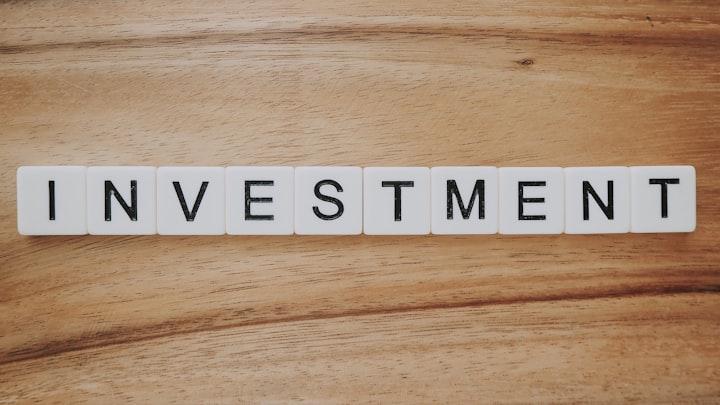10 opportunities NOT to invest
It’s a saying: “Not everything that flies is eaten!”

I often approach the subject of investments and I often notice, unfortunately, that many people try to take advantage of those with less experience in this field and offer them the so-called “investment opportunities” that seem simple, but they do not require much work and bring astronomical yields.
Why bother to learn to invest in the stock market, in real estate, or to make a business when you have “opportunities” that double your amounts in 2–3 months?
The mirage of large sums earned in a short time and without effort is great, but these “opportunities” are either superficially presented as “everyone can… is simple… does not require too much time and hassle” or are methods to steal money.
We can divide them into three categories:
- Those investments that are real, but.
- Those expenses that are promoted as investments even though they are not (a marketing trick);
- Those are frauds all right.
Let’s see what are the 10 opportunities NOT to invest in:
1. Investing in forex and derivatives — unless you want to become a professional trader and bear the cost.
I recommend it only in one case when you want to become a professional trader. That means years of study, work, practice, and substantial amounts invested in courses and turnover.
But to think of ads like “a housewife earns $ 4,000 a month for forex” in her free time is a very dangerous thing for you.
2. Invest in cryptocurrencies with all the money you have in the hope that you will hit the mark
You should know that investing in cryptocurrencies is very risky and you can lose all your money in a second. A certain cryptocurrency can disappear at any time due to a vulnerability, regulation, or simply due to the appearance of a much superior variant.
So, these are just some of the goal-setting shareware that you can use to save money. I don’t give exact percentages because they are very much related to the degree of risk tolerance of each one, but they should be less than 10% of the total personal investment.
3. Invest in a business on Amazon, if you don’t want to dedicate yourself to it, like any other business.
If we are still assaulted everywhere by sales messages for Amazon courses.
The truth is that you will succeed in this business after a lot of dedication, study and money invested. It is a real business and you have to dedicate time, money, and effort to it to have results.
From what I noticed, those who succeed in this type of business today (maybe a few years ago it was easier) are those who have solid business knowledge, solid financial resources to invest in, and already have a solid entrepreneurial mind.
So beware, don’t look at it as an easy escape from your employee life, because it’s not. If you get involved, it would be good to like the business model and be prepared with money, time, and energy to dedicate them like any other business.
4. Seminars / Courses like “quick enrichment, you will change your life, nothing will be the same”
Do some solid research before you go to such courses. See who is talking to you, see his behind-the-scenes experience, study the free materials (blog, videos, ebooks) and most importantly see how authentic he is in what he wants to pass on.
At a time when there are a large number of courses and seminars, most of them of dubious quality, it is essential to already have a certain knowledge base to be able to assess the quality level of a course/seminar and whether it is an investment. or just a cost, both money and time.
5. Investing in your own home — costs are not investments
I often hear the phrase “invest in your home” — and based on this repositioning, I’ve seen many people pawn their lives for years for this idea.
The human mind perceives positively the notion of investment compared to the notion of spending. The advertising industry uses this concept to make you borrow and spend.
If it is not a house you are renting, renovations, equipment, and fittings are costs, not investments.
6. Investments in miscellaneous, which are not investments — in travel, activities, experiences — which are recreational — and are very ok that they are recreational, but are not investments.
Here you just have to frame them correctly. There are costs that I make to enjoy the beautiful experience, which is very ok, but it is not an investment. Investments are the ones that bring you more money than you put in.
7. Investments in jewelry — on the idea that they invest in gold
Jewelry is for decoration, not investment. Their cost includes, in addition to the precious metal or precious stones ”and the labor of their realization, the brand, etc.
If you want to invest in gold, invest in gold bullion or ETFs.
8. Investing in all sorts of MLMs that promise sea salt and don’t have a real product or have a real product but that’s just a screen for the real business behind it: a fraudulent pyramid scheme.
There are hundreds of “investments” that are just screened for pyramid schemes, from which those at the top of the pyramid get rich, based on the money put in by those at the base of the pyramid. They are similar to the Caritas fund if you remember.
Today they are much more sophisticated, they have some real investments, they look legitimate in front of people and the authorities and they have messages like “We are a group of people who will realize ourselves, alone against everyone and you are a fool ”.
They have no real products or are quite abstract, the yields are astronomical — tens, hundreds of percent per year.
The message of the recruiters is like “You lose if you don’t get in, you’re a sucker”, a message that tries to make you feel like the last loser and you want to catch the last train to prosperity.
Another way to realize the legitimacy of such a scheme is to look for it on various international sites that analyze MLMs:
https://mlmcompanies.org/
9. Investing in the stock market based on tips received over the phone — come on I have a tip now is the biggest opportunity of the moment.
Usually, you are called a kid or someone who presents you with a great investment opportunity either in forex or in stocks on foreign stock exchanges. They usually start their conversations with “Have you heard how much the dollar has grown lately?”
Their goal is to make you feel uninformed and stupid and to invest with them so that you don’t stay stupid. In reality, they will eat all your money through trading commissions and questionable investments.
10. Investments for large investors that are magically offered to you by your neighbor.
An unregistered investment fund that usually “magic” offers you, mortals, the opportunity to invest in assets available only to the very rich, with returns of over 100–200–300% per year of the course. Whether luck fell on you or not. It’s just a scam.
Investments for rich people are intended only for “qualified investors who have the money and advanced knowledge of investing” and are prohibited by law from being offered to ordinary investors due to the high degree of risk. However, even those do not have yields of 100–200–300% per year. If any investment in the world consistently yielded 100–200–300%, I wonder why Warren Buffett, who is an investment genius, has been content with only an average of 20% per year throughout his career.
Investment conclusions
Investments are not made easy, at anyone’s fingertips, and without a solid education behind them. The easy things are to spend money on useless things, to put money in the lottery, to lose money in “pseudo-investments” that promise you the sea with salt.
In addition to the non-investment opportunity presented in this article, I am sure that there are dozens, hundreds of other “opportunities” that have been proposed to you and are of this kind.
- A first step would be to form an investment knowledge base, which you are already doing, by reading this blog and other quality blogs that provide valuable and relevant information in the field.
- A second step would be to study valuable personal finance and investment books, such as Tony Robbins’ book Money: Master the Game, probably the most valuable personal finance book in 20–30 years. It is an investment, not a cost because it will put a lot more money in your pocket than you initially invested.
- And step three: apply everything you have learned, with perseverance.
Until next time,
read too:





Comments
There are no comments for this story
Be the first to respond and start the conversation.